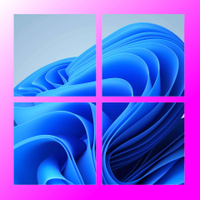
Despite all the backlash and security problems the upcoming Windows Recall feature has faced, it now looks like Microsoft won't be giving users the option to uninstall it. That's right, whether you use it or not, you're not going to be able to rid your system of the feature.
While notes for a previous Windows update made it seem like Recall would be a feature that can be disabled, Microsoft has told The Verge that the way it was listed in these update notes was a "bug."
The company states, "We are aware of an issue where Recall is incorrectly listed as an option under the ‘Turn Windows features on or off’ dialog in Control Panel," and confirming, "This will be fixed in an upcoming update."
For those unaware, Recall is a feature that's meant to "help you find anything you have ever seen or done on your PC". For example, you could ask Recall to find that spectacularly hilarious video you were watching a few days ago but forgot to bookmark.
If that seems impossible then you're forgetting the magic of AI—this being why Recall is a feature meant only for Copilot+ PCs with powerful NPUs, such as those in the Snapdragon X Series or the recent AMD Strix Point APUs.
Do you want a photographic memory? The next best thing is Recall. Check out this new experience only available on Copilot+ PCs. Here is a demo from my colleague Carolina. pic.twitter.com/goylSXxslHMay 20, 2024
Or perhaps you're wondering how even an AI-powered feature could achieve such a feat without having records of absolutely everything you've done on your PC. I mean, that would be a security nightmare, right?
If that's what you're wondering, you're right to wonder—because it can't. Recall does, in fact, take screenshots of your desktop every few seconds, and it's this requirement that has caused backlash. Such a backlash, in fact, that Microsoft backtracked and said the feature won't be enabled by default as was previously expected, and users will instead have to opt in to use it.
The biggest gaming news, reviews and hardware deals
Keep up to date with the most important stories and the best deals, as picked by the PC Gamer team.
There's also the fact that researchers managed to bypass Windows security to access all the stored images, which is not a good look. Microsoft might have since made changes to improve security and reassured us that the images will only be locally accessible to the Recall user, but that such a hack was possible in the first place hasn't improved public perception of Recall.
There's also rumour of "intelligent media search" in the works, too, this being a Windows feature that will scan and transcribe all your computer's audio and video files to find the phrase you're looking for. Such a feature would certainly gel with Microsoft's Recall plans and likely grate against existing security concerns.
And now, after all this and a postponed feature launch, it looks like we won't be allowed to uninstall it when it does actually come out. Although, I should note that Microsoft hasn't confirmed that Recall won't be able to be uninstalled, only that the note hinting it would be was a bug.
Personally, I wouldn't count on Microsoft allowing us to uninstall the feature completely. The company doesn't have the best track record for allowing such things. Remember Cortana? Heck, even Microsoft Teams and OneDrive can be difficult to get rid of.
Let's just hope leaving the feature disabled will be enough. No funny business, okay, Microsoft? Okay?
Windows 11 review: What we think of the latest OS.
How to install Windows 11: Guide to a secure install.
Windows 11 TPM requirement: Strict OS security.

Jacob got his hands on a gaming PC for the first time when he was about 12 years old. He swiftly realised the local PC repair store had ripped him off with his build and vowed never to let another soul build his rig again. With this vow, Jacob the hardware junkie was born. Since then, Jacob's led a double-life as part-hardware geek, part-philosophy nerd, first working as a Hardware Writer for PCGamesN in 2020, then working towards a PhD in Philosophy for a few years (result pending a patiently awaited viva exam) while freelancing on the side for sites such as TechRadar, Pocket-lint, and yours truly, PC Gamer. Eventually, he gave up the ruthless mercenary life to join the world's #1 PC Gaming site full-time. It's definitely not an ego thing, he assures us.
Most Popular








